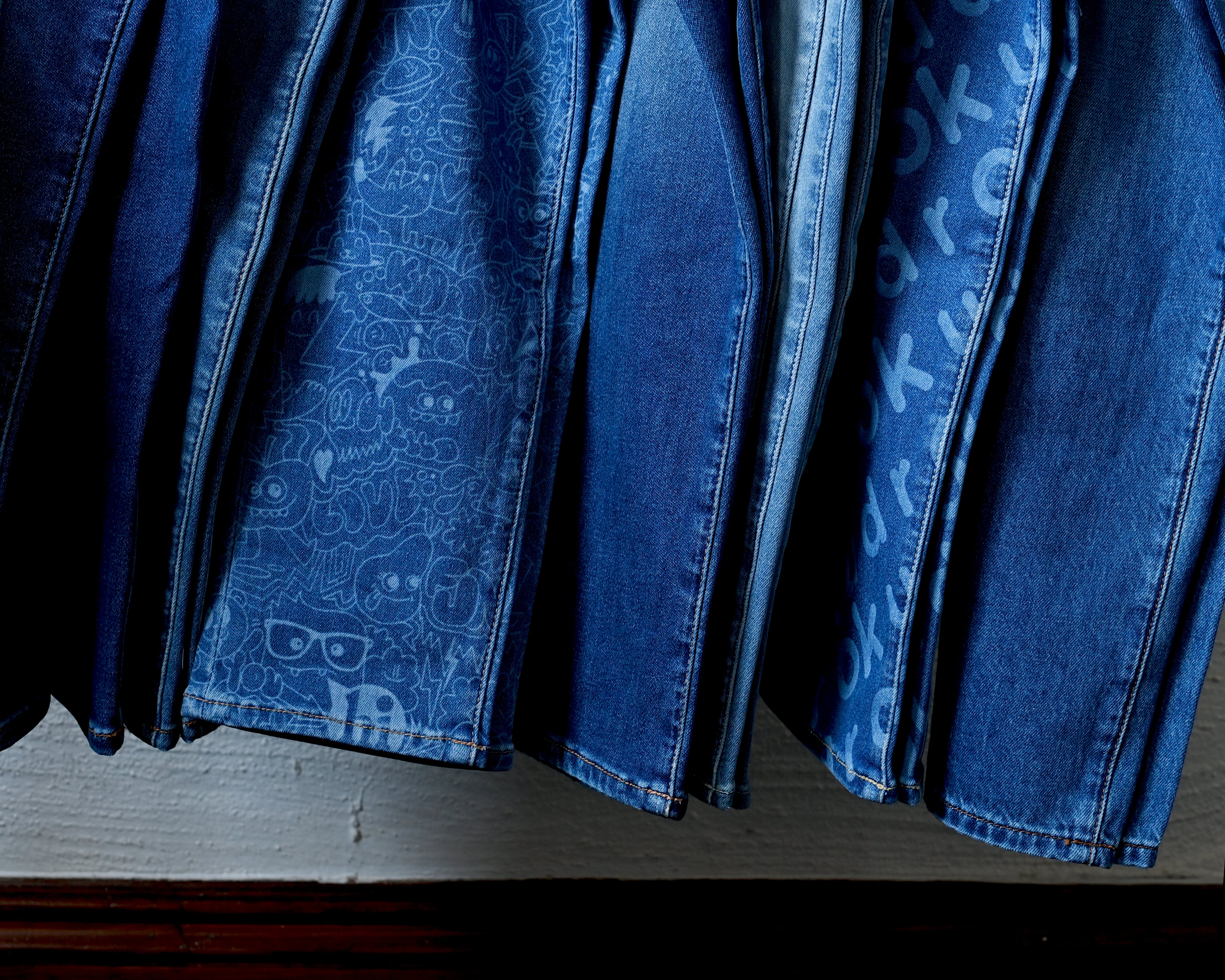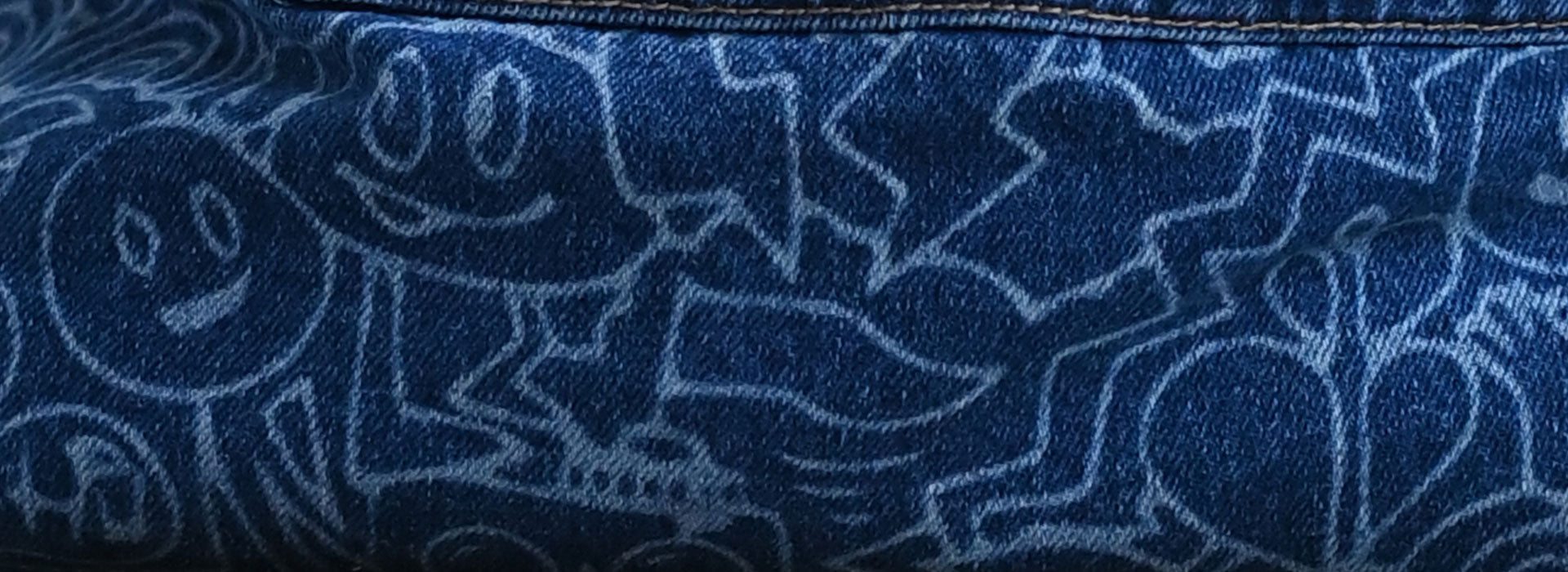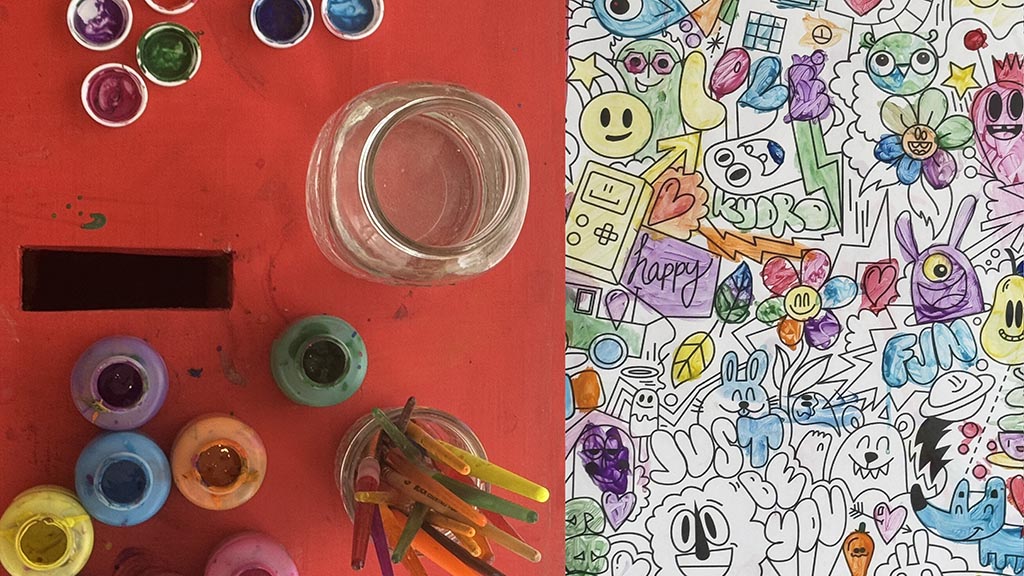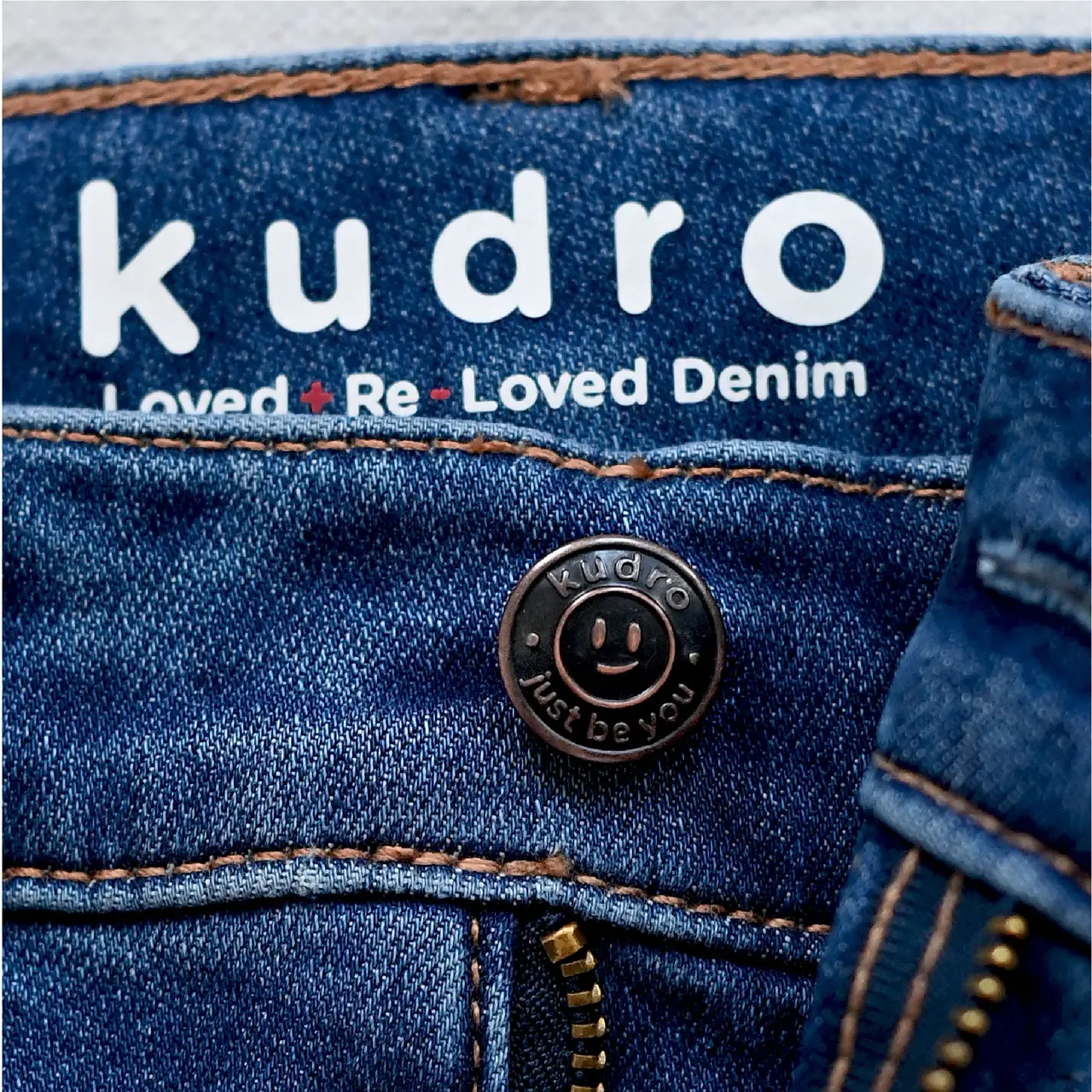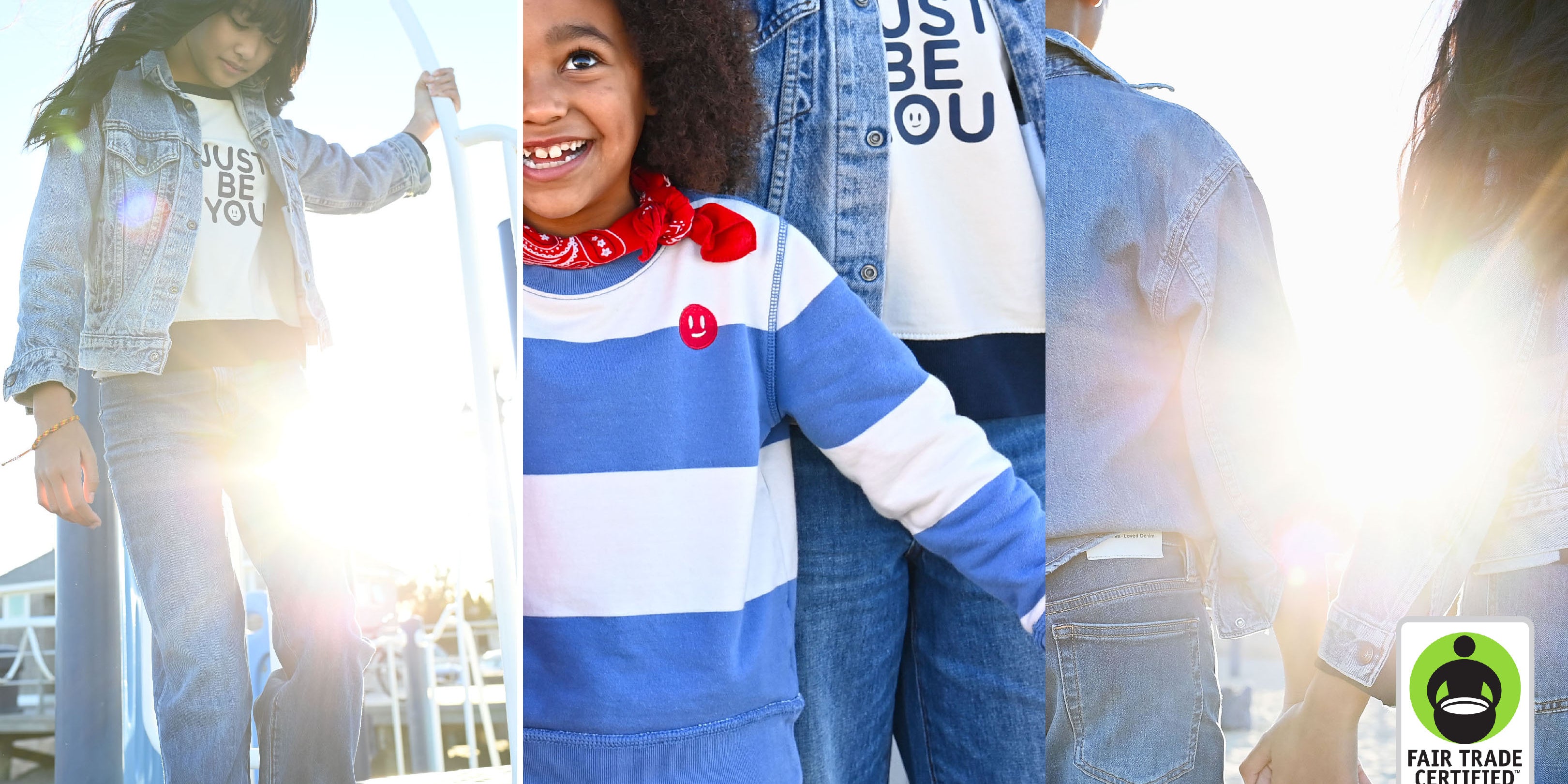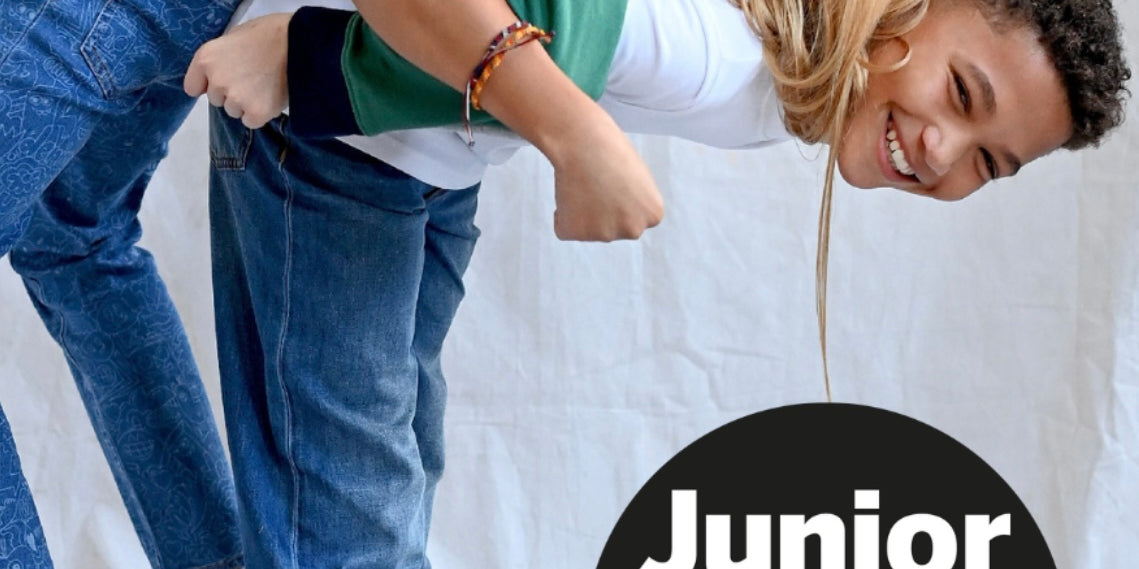How Are Re-loved Jeans Eco-Friendly?
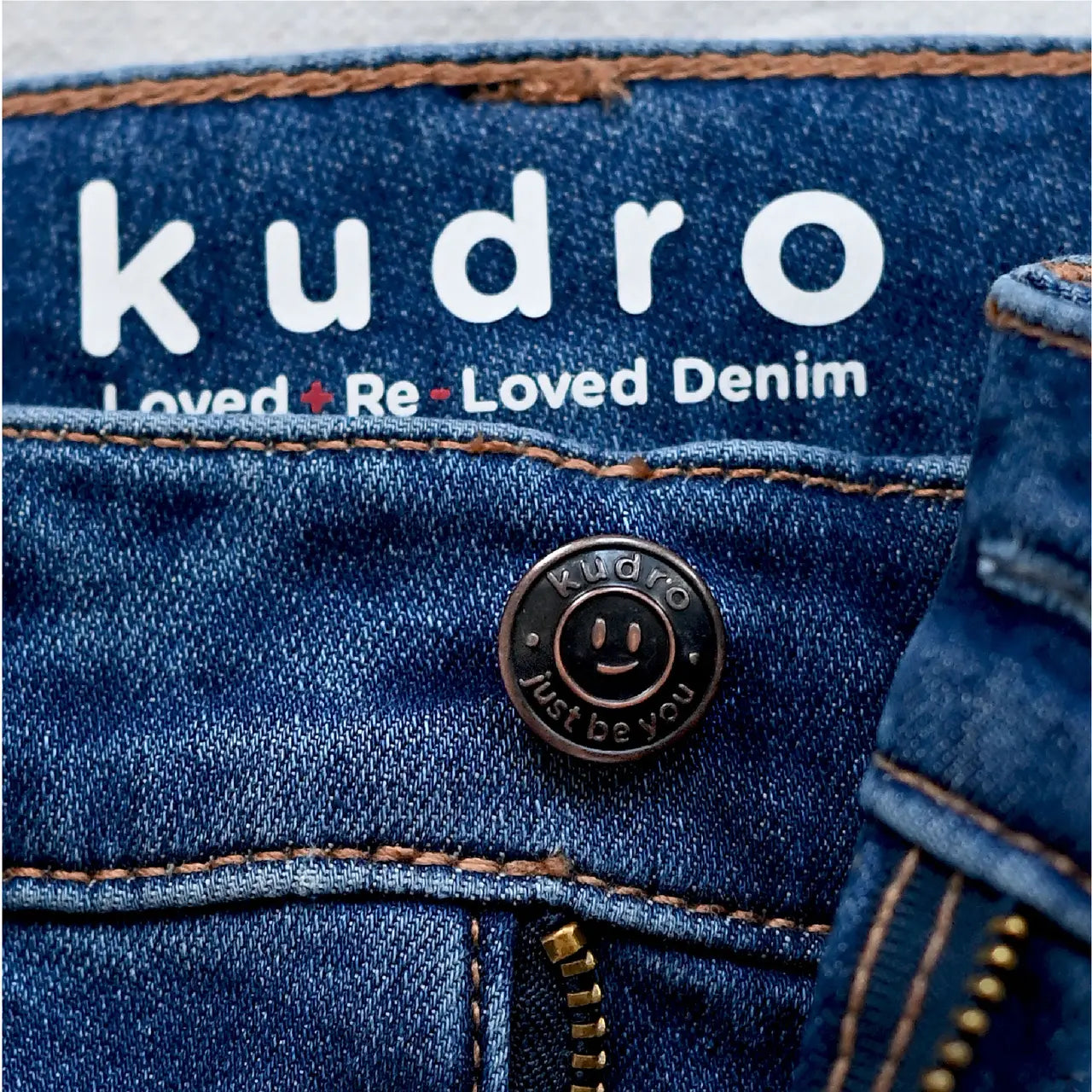
In an age where fast fashion dominates the retail landscape, sustainable fashion choices are more important than ever. One standout option is Kudro’s Loved & Re-Loved jeans, which not only offer stylish alternatives but also significantly reduce waste and environmental impact. Understanding how these jeans are made sheds light on the vital role of eco-friendly practices in the clothing industry. Let’s delve into the process of creating Re-Loved jeans and explore why they are a smart choice for both your wardrobe and the planet.
The Eco-Friendly Journey of Kudro Re-Loved Jeans
1. Sourcing Materials Responsibly
The journey of Kudro Re-Loved jeans begins with responsible material sourcing. Kudro incorporates sustainable sourced materials lyocell, organic cotton and Eco-made T400 which significantly reduce the environmental impact of denim production. Eco-made T400 is a type of fabric that blends recycled and virgin fibers, enhancing durability while minimizing waste. This innovative material not only reduces reliance on new resources but also decreases energy consumption during manufacturing. Meanwhile, organic cotton is grown without synthetic pesticides or fertilizers, promoting healthier soil and ecosystems. By choosing these sustainable options, brands can create denim products that support ethical farming practices and reduce water usage, all while delivering high-quality, stylish garments. This commitment to using responsibly sourced materials underscores the importance of sustainable fashion in reducing the industry’s overall ecological footprint
3. Ethical Manufacturing
Kudro is dedicated to ethical manufacturing practices, partnering with Fair Trade factories to ensure that every pair of jeans is produced under fair working conditions. By collaborating with these certified facilities, Kudro guarantees that workers receive fair wages, safe working environments, and respect for their rights. This commitment to ethical practices not only supports the well-being of the artisans who craft each garment but also promotes transparency and accountability in the fashion industry. Choosing Kudro’s Re-Loved jeans means you’re investing in quality clothing that aligns with your values, making a positive impact on the lives of workers and the environment. With a focus on sustainable and ethical manufacturing, Kudro is setting a standard for responsible fashion that benefits everyone involved in the production process.
2. Reducing Waste Through Reusing
Kudro Re-Loved jeans focus on reusing jeans so they can be worn by more than one child. This approach not only reduces waste but also preserves the history and character of each garment. By emphasizing the reuse of quality denim, Kudro demonstrates that sustainability can coexist with style, allowing for unique, fashionable pieces that stand out while promoting responsible consumption. This commitment to reducing waste fosters a sense of community and connection, ensuring that each pair of jeans carries a story worth sharing.
3. Sustainable Production Practices
Kudro is committed to eco-friendly production methods that further reduce their carbon footprint. The manufacturing process employs low-impact dyes and environmentally friendly treatments, minimizing harmful chemicals that often pollute waterways. Additionally, energy-efficient machinery and practices are implemented to lower energy consumption. By prioritizing sustainability throughout production, Kudro reinforces their commitment to protecting the environment while delivering quality products.
4. Durable Design for Longevity
In a world where clothing is often seen as disposable, Kudro’s Loved & Re-Loved jeans are designed to last. The emphasis on durability not only extends the life of each garment but also encourages consumers to make more thoughtful purchasing decisions. Kudro’s Re-Loved program promotes sustainability by collecting and refurbishing pre-loved kudro jeans, allowing pre-loved jeans to be worn by multiple children. Parents can sell back their Kudro jeans, giving them a second life while ensuring style and durability. This initiative reduces waste and fosters a circular economy, enabling families to contribute to responsible fashion while dressing their children in unique pieces.
5. Promoting Conscious Consumerism
Kudro’s commitment to sustainability goes beyond the jeans themselves. By sharing the stories behind their products and educating consumers about the environmental impact of fast fashion, they promote a culture of conscious consumerism. This empowers individuals to make informed choices, fostering a community that values sustainability and ethical practices in fashion.
The Importance of Eco-Friendly Fashion
The rise of sustainable fashion choices like Kudro Re-Loved jeans highlights the pressing need for change in the clothing industry. By opting for eco-friendly alternatives, consumers can play a pivotal role in reducing waste, conserving resources, and promoting ethical practices. The shift towards sustainability not only benefits the planet but also encourages a more thoughtful approach to fashion—one that values quality over quantity.
Conclusion
Kudro Re-Loved jeans are a prime example of how fashion can align with sustainability. From responsible material sourcing to eco-friendly production methods, each step in their creation process reflects a commitment to reducing environmental impact. By choosing Kudro jeans, you’re not just making a stylish choice; you’re also supporting a movement towards a more sustainable future in fashion. So next time you’re in the market for new jeans, consider the impact of your purchase and opt for a jeans that combines style, quality, and a commitment to the planet.
